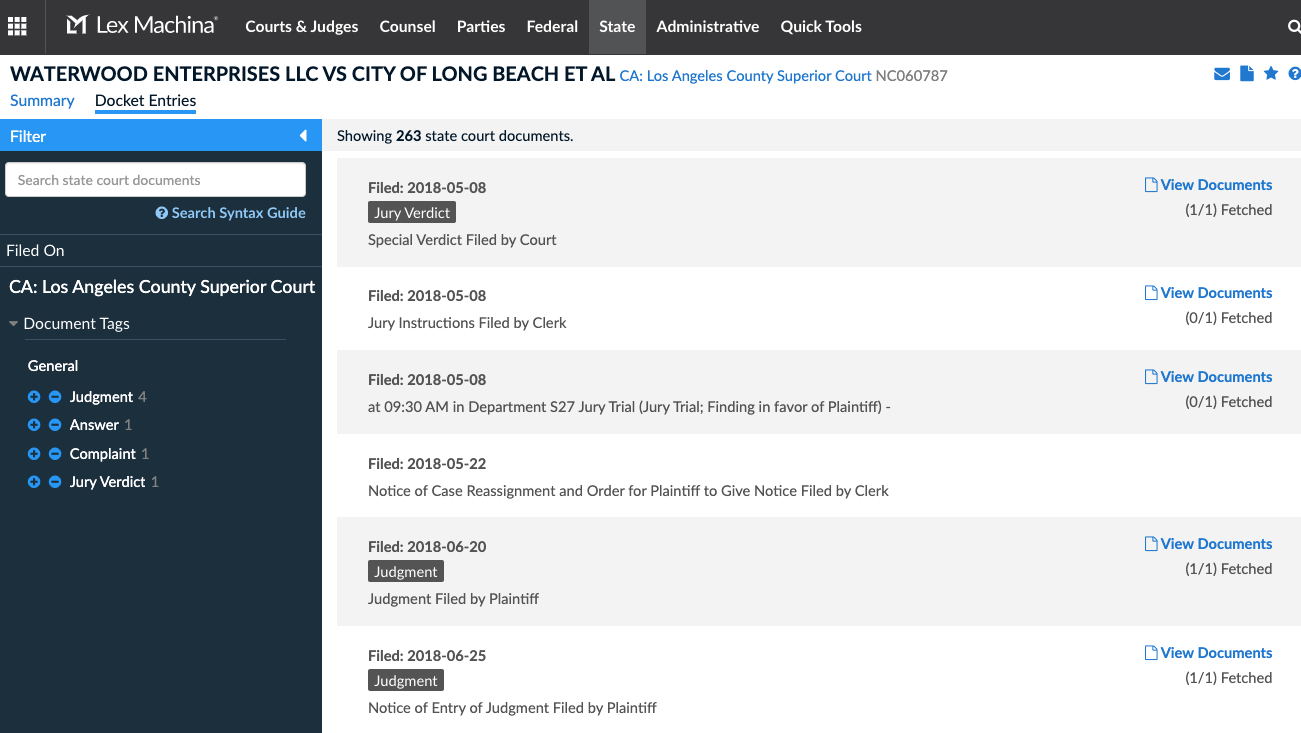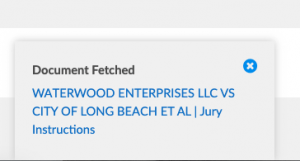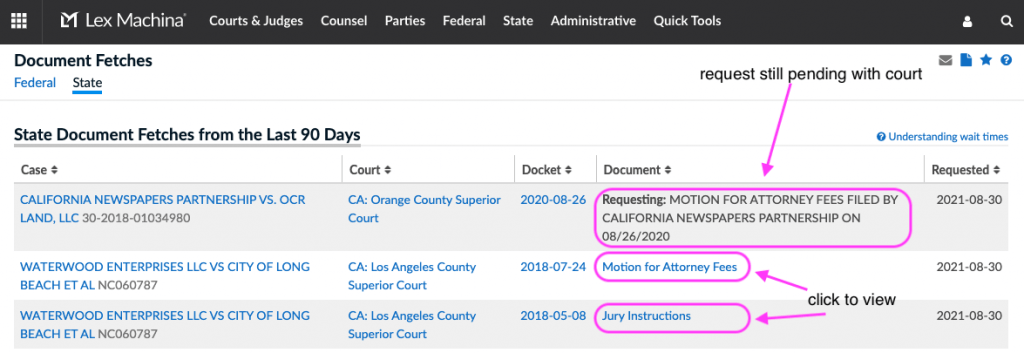The legal analytics platform Lex Machina has introduced a “fetch” functionality that allows users to request and retrieve specific documents from state court dockets.
The functionality is designed to enable users to dig into the details of analytics research they perform on Lex Machina, obtaining specific motions, orders or other documents that can provide details beyond what is revealed through docket entries.
The fetch functionality is available only for the 22 state courts covered by Lex Machina’s analytics, which currently includes selected courts in California, Delaware, Georgia, Nevada, New York and Texas. (Full list of covered courts.) There is no added cost beyond the user’s subscription.
Lex Machina — which is owned by LexisNexis — already routinely retrieves key state court documents such as complaints, answers, and judgments as part of creating its analytics. Because the information available directly through state court dockets varies widely from court to court, Lex Machina processes these documents to extract data on judges, law firms, attorneys and parties involved in cases, and then normalizes that data to create analytics.

The user can fetch a document with a click. The interface provides an estimate of when the document will be retrieved.
It already offered users access to view any of those documents it downloaded in that data-extraction process. Now, it goes a step further, allowing users to request any document that has not been previously downloaded. Once a user’s request is fulfilled, the document becomes available on Lex Machina to all users.
Yesterday, Carla Rydholm, director of product management at Lex Machina, provided me with a preview of the fetch functionality.
She said that, while users typically start their research in Lex Machina with “big picture” analytics for an overview of a judge or law firm, they often drill down into the specific cases that underlie certain aspects of those analytics, and as they do, they want to see particular documents that can provide more detail on facts or legal theories.
Now, when viewing a docket, the user can see which documents have already been fetched and which have not. The user can then simply click to request Lex Machina to fetch the document.
Retrieval of the document is not instantaneous. The time is takes depends on the court. When a user requests a document, Lex Machina provides a notification estimating when the document will be available.
Once the document is available, the user is notified in three ways:
-
If the user is working in Lex Machina, a toast notification pops up indicating that the retrieval is completed.
- The customer’s dashboard showing all document fetches is updated from a status that Lex Machina is requesting a document to a link where the customer may click through to the now-available document.
- Customers receive a once-daily email at 7:15 a.m. ET to summarize any documents now available that the customer had requested.
Rydholm said that Lex Machina does cap the number of documents a user is able to download per month, but that the cap is so high that few are likely to reach it.
Ever since LexisNexis acquired Lex Machina in 2015, it has been steadily expanding its court coverage, both expanding its federal court legal analytics into new practice areas and adding analytics for state courts.
The company says that expansion into additional state courts remains a top priority.
 Robert Ambrogi Blog
Robert Ambrogi Blog

